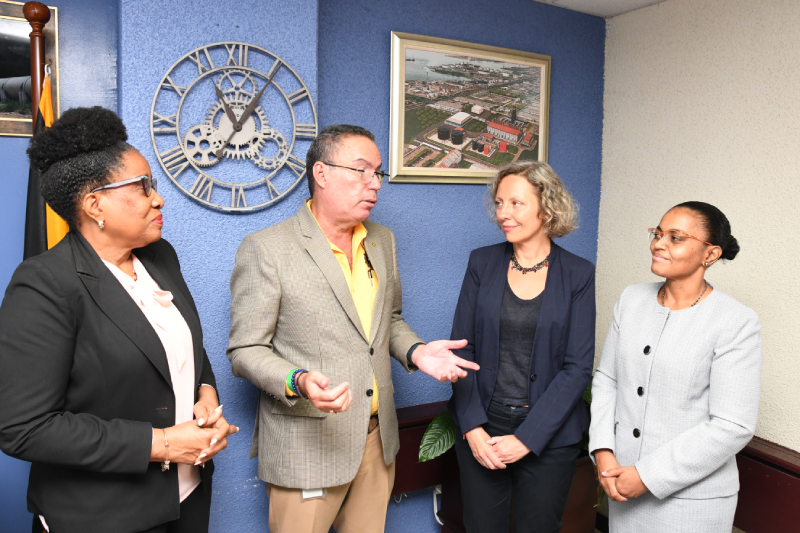Claudine Allen, the general manager of the JN Foundation, says while compliance is vital to increasing helmet usage among cyclists and pillions in Jamaica, simply achieving greater use of the gears alone will not safeguard against injury and fatalities.
“Behaviour change is a part of the solution, but we have to create an environment where the helmets that are available are protective, not decorative and are going to save lives,” the JN executive underscored.
Ms Allen made the statement during a courtesy call recently on Minister of Science, Energy, Telecommunications and Transport, Daryl Vaz. She was accompanied by Aggie Krasnolucka, programmes director of the FIA Foundation, an international charity, working closely with grant partners to shape projects and advocate to secure change in policy and practice.
Ms Krasnolucka was on a visit to Jamaica to sign an agreement with the National Road Safety Council and the JN Foundation to implement the National Helmet Wearing Coalition Project, which seeks to increase helmet wearing among riders and pillions, increase the use of approved helmets, as well as stimulate a local market for helmets.
Ms Allen said the National Helmet Wearing Coalition, which comprises stakeholders in road safety and mobility, will assist in addressing the widespread issues pertaining to the regulatory standards for helmets and enforcement, as well as awareness among cyclists and pillion.
In his response, Minister Vaz said a public education campaign is necessary to promote helmet wearing.
“A big part of any initiative would be the public education component because these youngsters do not listen easily and it is very difficult to get them to comply,” he said as he commended the initiative to be undertaken.
Paula Fletcher, executive director of the National Road Safety Council, noted that while motorcycle deaths have been trending downward since 2021, the figures are still a major concern.
“It has been coming down, but it is still a third of national statistics, so that is still significant,” she pointed out.
The National Helmet Wearing Coalition Project was established under a three-year agreement valued at $750,000 euro last month.
The first phase of the project will commence with the execution of research to provide baseline data that will inform the work of the project going forward. A comprehensive stakeholder mapping and engagement exercise will then be undertaken to examine and understand the situation relating to helmets and helmet wearing in Jamaica.
According to the National Road Safety Council, since 2015, approximately 1,238 motorcyclists up to September 13 have been killed on roads in Jamaica. All were men. Data from the Ministry of Transport and the Jamaica Constabulary Force indicate that these deaths account for approximately 30 per cent of total deaths caused by road crashes in Jamaica over the period, and that over 90 per cent of those who died were not wearing a helmet.




